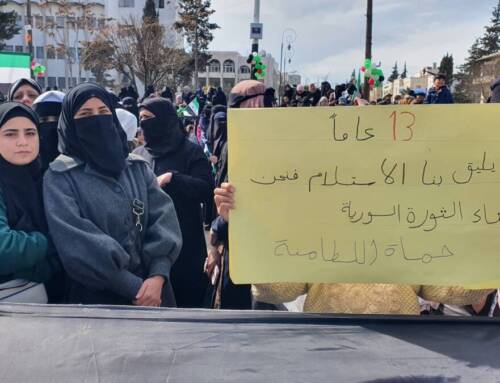‘Worse than being on the frontline’: A day at Syria’s makeshift oil refineries (Photos)
Two workers at a makeshift oil refinery in Tarhin speak about their job, the hardships they endure and the dreams they hold for the future.
10 June 2022
PARIS, AL-BAB — “This job is more dangerous than being on the frontline,” Mamduh Issa, a “cleaner” at a makeshift oil refinery near Tarhin in northern Aleppo, told Syria Direct. “Fighting is more merciful than this.”
Makeshift oil refineries, which transform crude oil into a low-quality type of diesel known locally as mazot, are among Syria’s most dangerous workplaces. Every day, Issa cleans furnaces used to heat up crude oil, scrubbing the inside to remove residues from the burning process, inhaling toxic fumes for hours on end. And every evening, he carries home debilitating pains that, after six years, have become familiar companions: severe headaches, deep coughs, burning eyes.
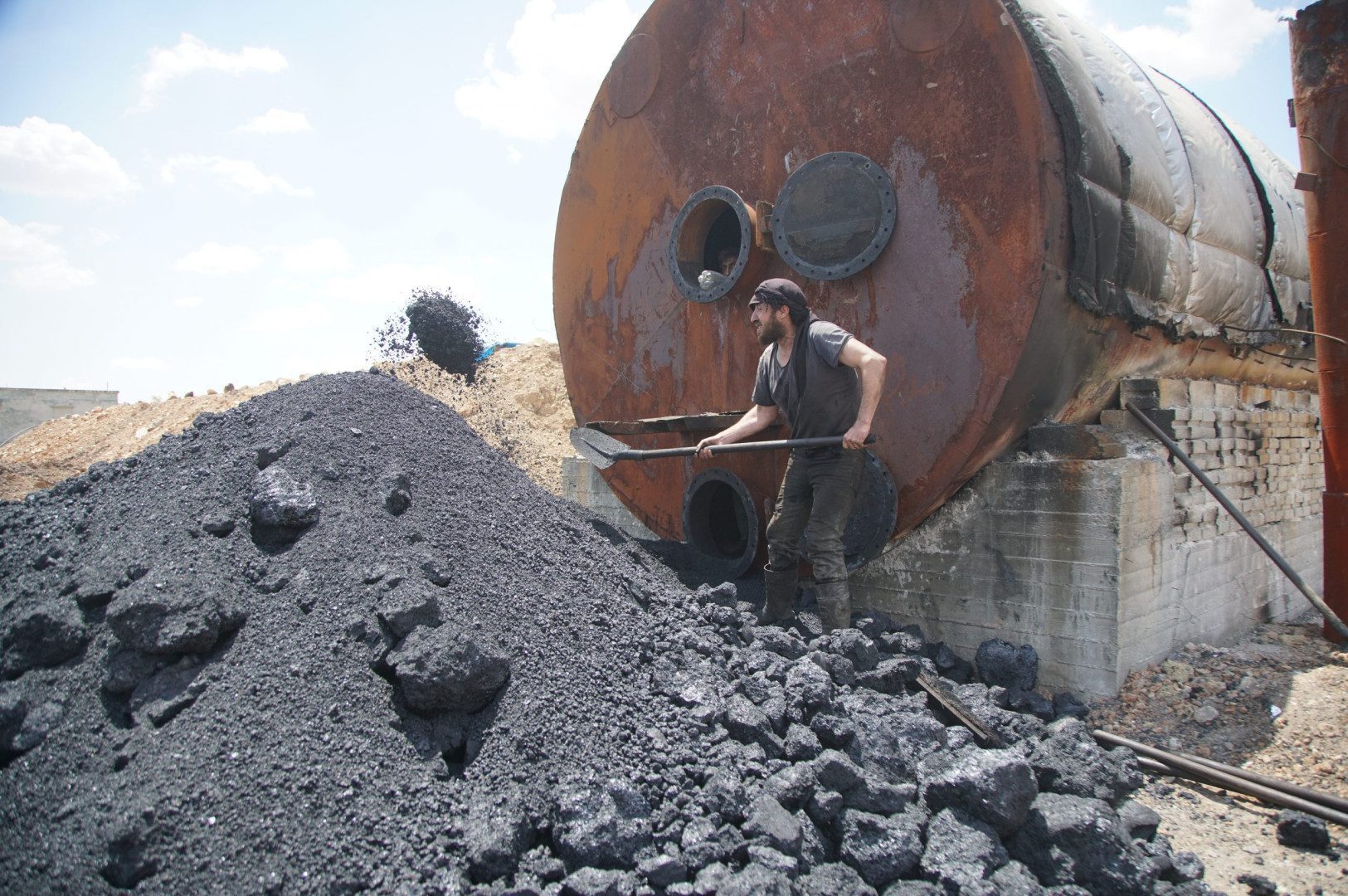
Mamduh Issa removes residues from the tanks used to heat the crude, work that begins after the refining process is complete, 12/05/2022 (Saad Alwan/Violet Organization/Syria Direct)
But for this father of five displaced from al-Safira in the southern Aleppo countryside in 2012, working at the furnace is better than poverty. Around 1,000 people work in this sector around Tarhin, where about 100 crude oil burners operate, according to a member of the local council of the town of Qabasin (to which Tarhin belongs administratively).
[irp posts=”44778″ name=”‘A ticking time bomb’: Hellish work at northwestern Syria’s makeshift oil refineries”]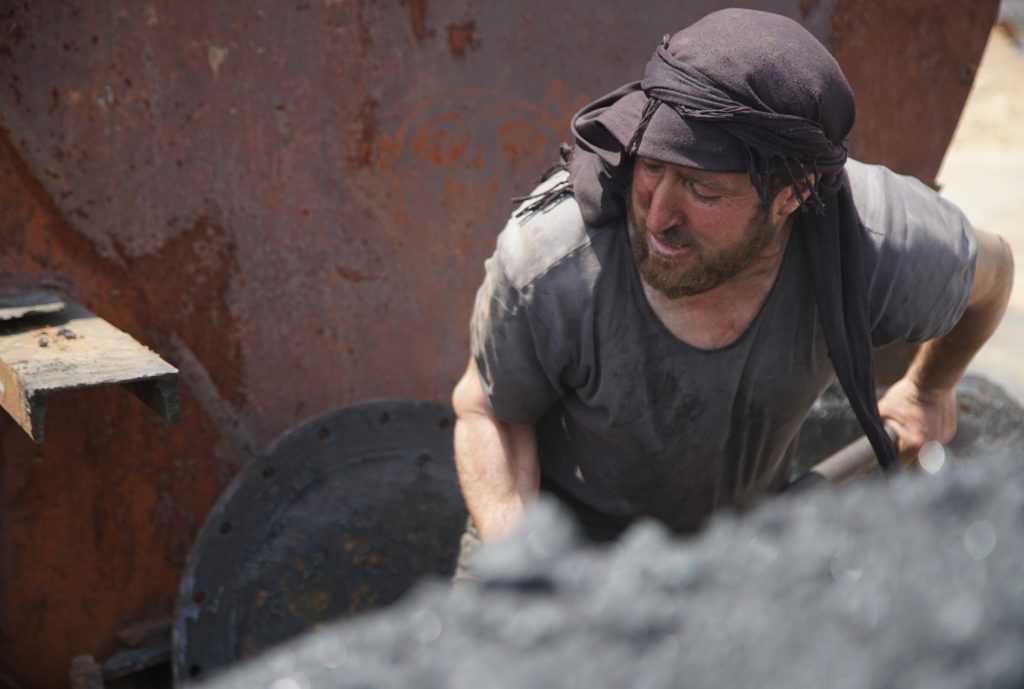
Mamduh Issa works bare-handed, with nothing to shield him from the heat, smoke and dust, 12/05/2022 (Saad Alwan/Violet Organization/Syria Direct)
‘No one is responsible but me’
Issa’s work is exhausting, all the more so because there is no adequate equipment. He cleans the furnaces with simple tools – an axe and a shovel – entering the tanks while they are still burning hot. He has no gloves, helmet or insulated clothing. Rather, he sometimes works shirtless to cope with the heat.
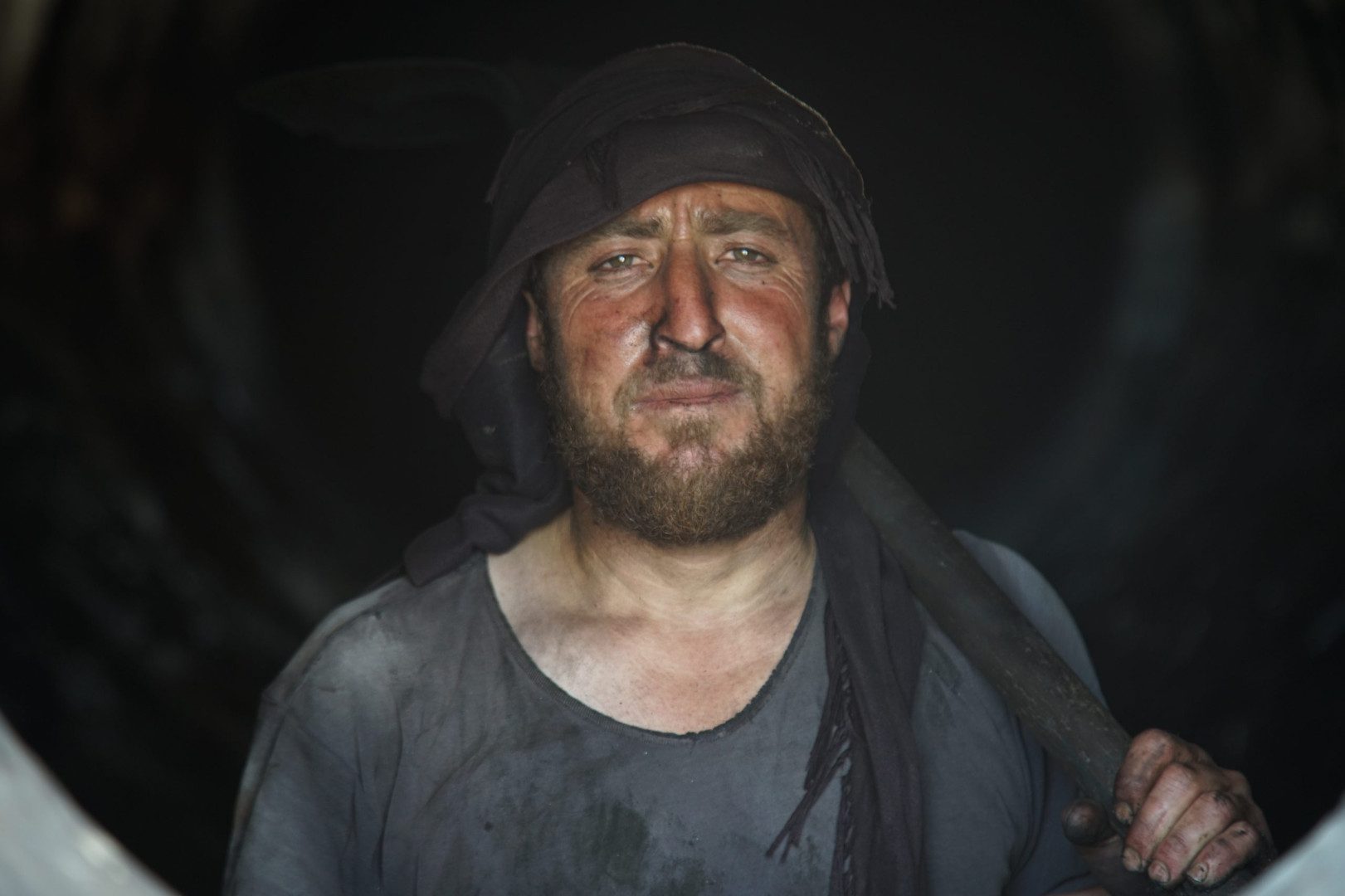
Shovel in hand, Mamduh Issa stands inside a burner, 12/05/2022 (Saad Alwan/Violet Organization/Syria Direct)
Making mazot is dangerous work. When gases from the refining process stay trapped in the tank, a single flame can trigger an explosion. Abdul Rahman Saeed, a “cook” who supervises the refining process, told Syria Direct that, over the past five years working at the refinery, he suffered multiple burns all over his body.
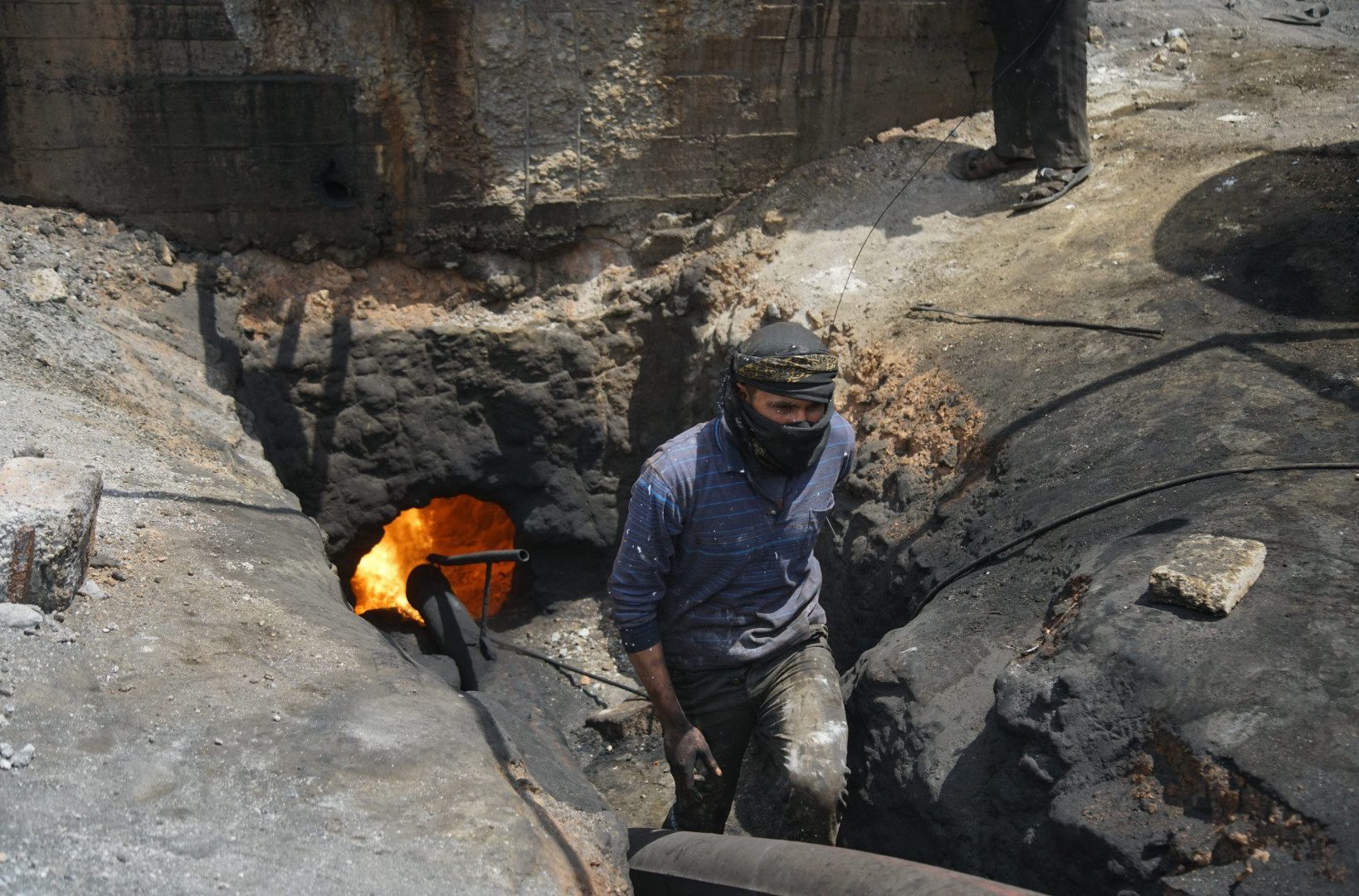
Abdul Rahman Saeed monitors the fire heating a tank in which crude oil is refined, 12/05/2022 (Saad Alwan/Violet Organization/Syria Direct)
Workers are left utterly alone to face these risks. “No one is responsible but me,” Issa said. “Employers will not even cover the price of medicine if you need it. If I die, the ones who lose most are my wife and children.”
[irp posts=”44754″ name=”How Syria’s makeshift refineries poison people—and the land that sustains them (Photos)”]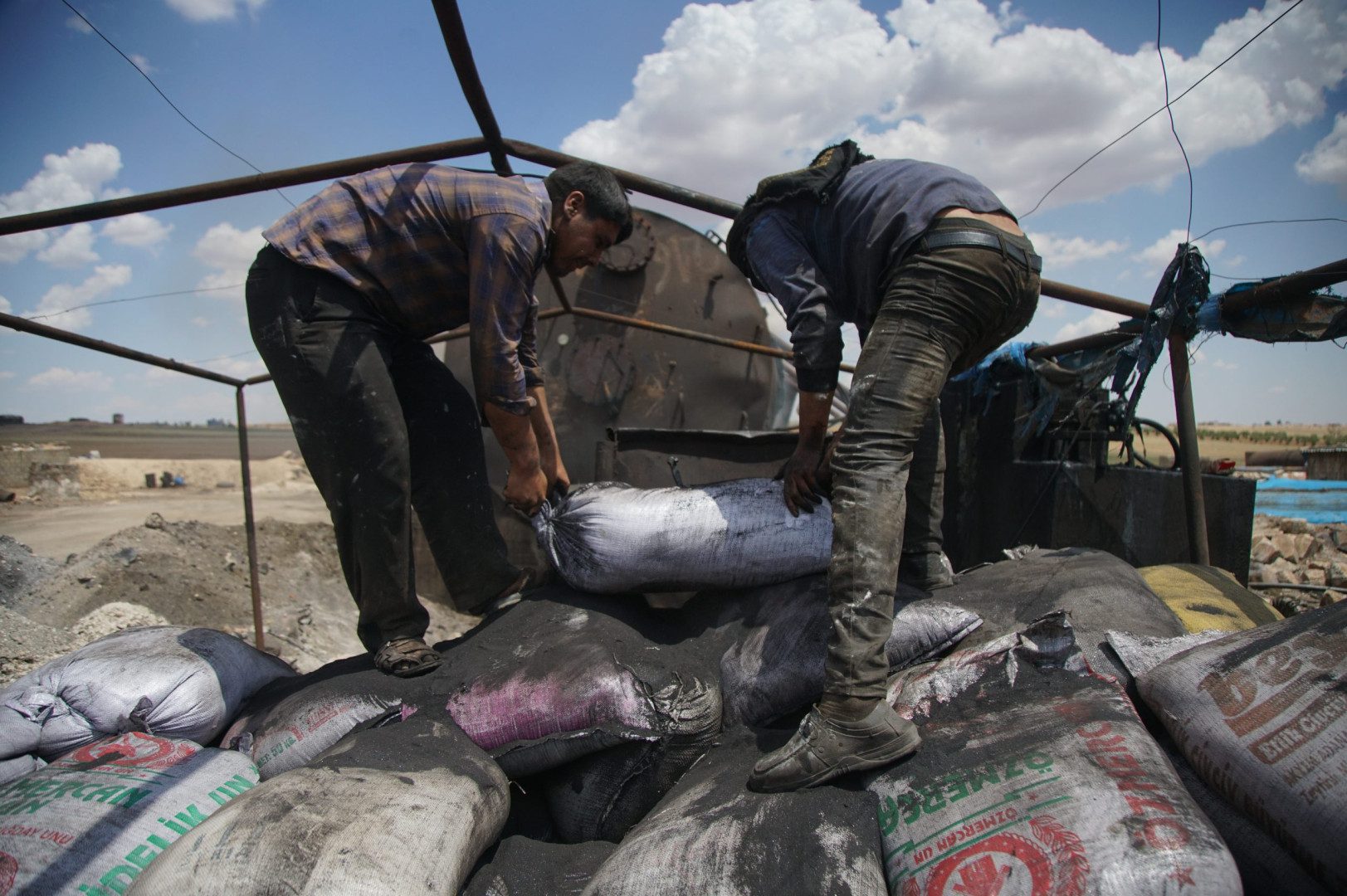
Abdel Rahman Saeed and another refinery worker package coal obtained from the refining process, which is sold as heating material, 12/05/2022 (Saad Alwan/Violet Organization/Syria Direct)
Saeed said his employer used to pay for the medicine he occasionally needed, but would not cover the health costs incurred from chronic diseases or permanent disabilities caused at the refinery.
“If I had money, I would work in another field,” Saeed added. “If there were jobs somewhere else, what would force me to work here?”
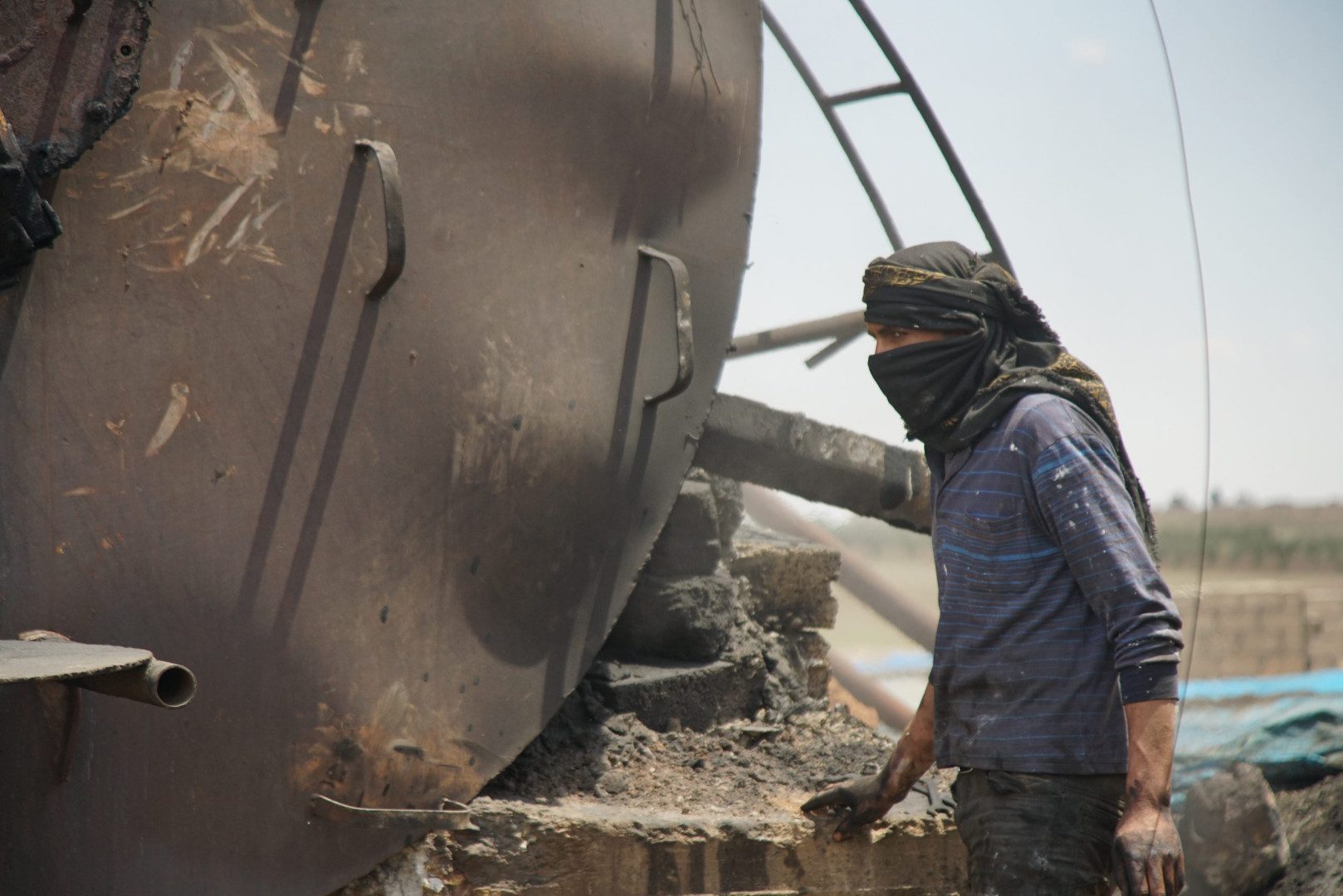
Abdel Rahman Saeed watches over the tank in which crude is being heated, 12/05/2022 (Saad Alwan/Violet Organization/Syria Direct)
Trapped in this inferno by war-induced poverty, Saeed’s dream is to return home, leave the burners behind, and buy three ewes. “With that, I can secure a livelihood for my children permanently.”
**
This report was produced with the financial support of the European Union, but does not necessarily reflect the views of the European Union. Its contents are the sole responsibility of Syria Direct and Violet Organization.







